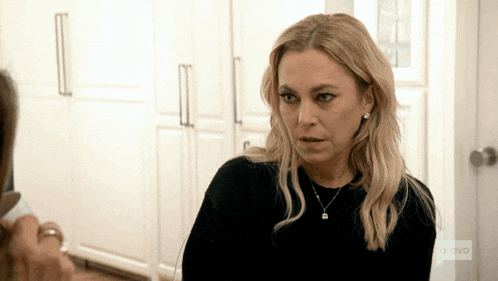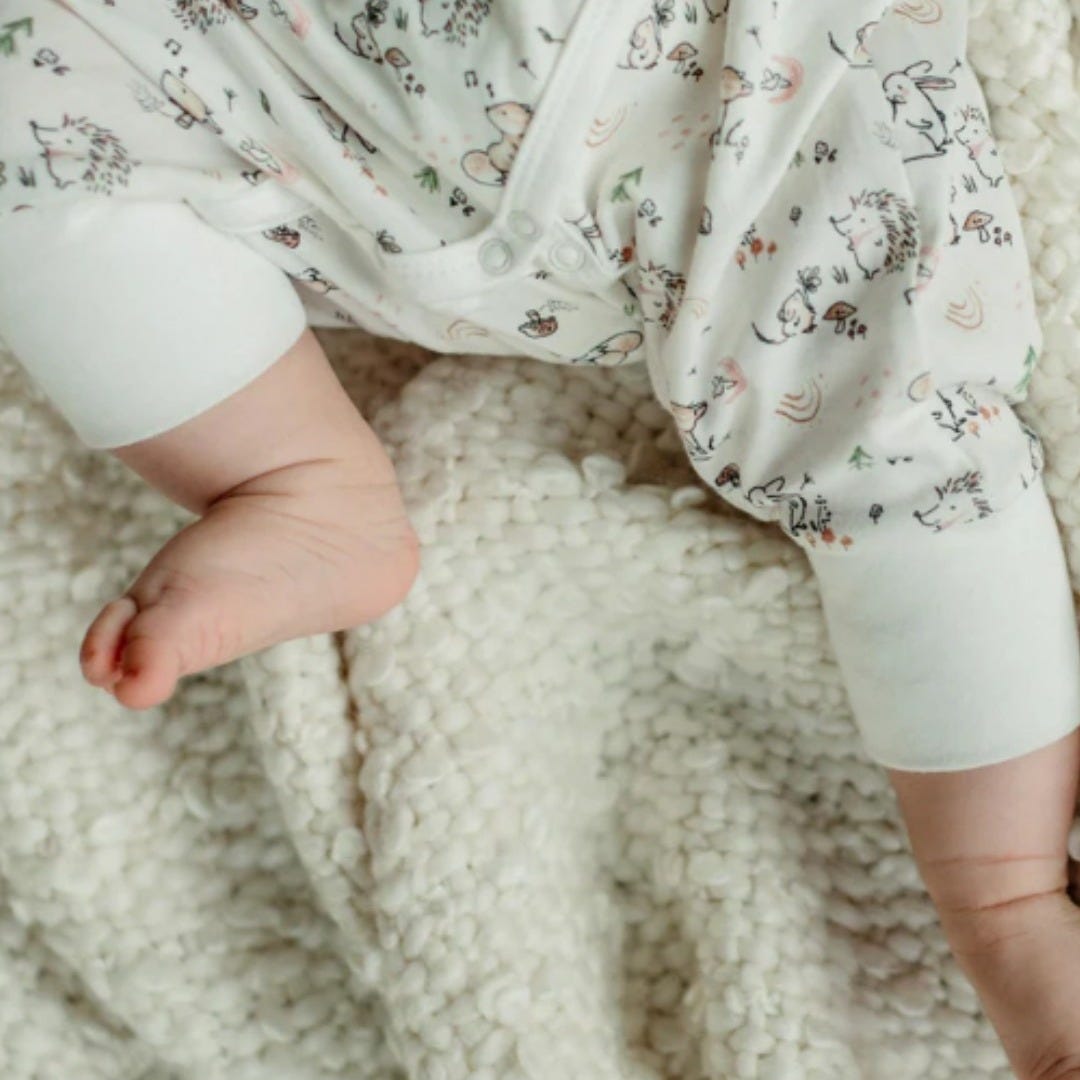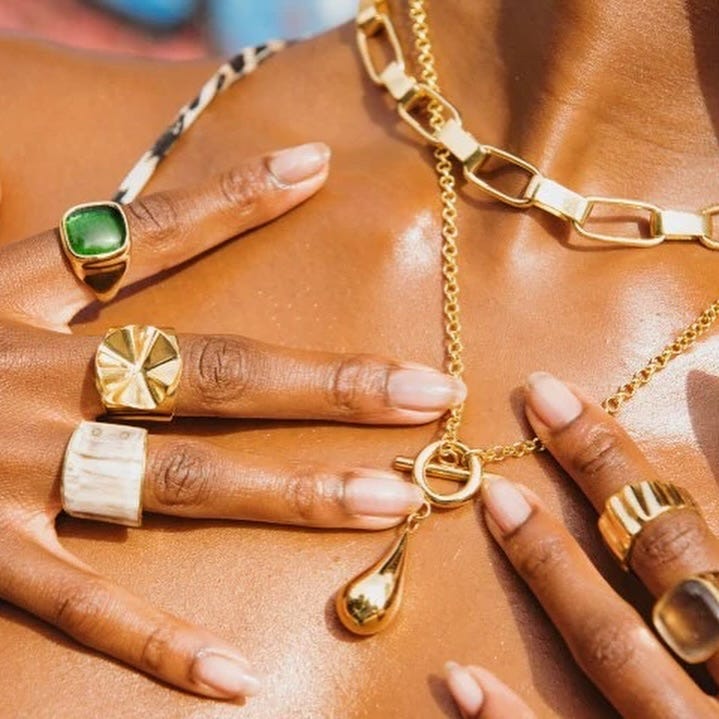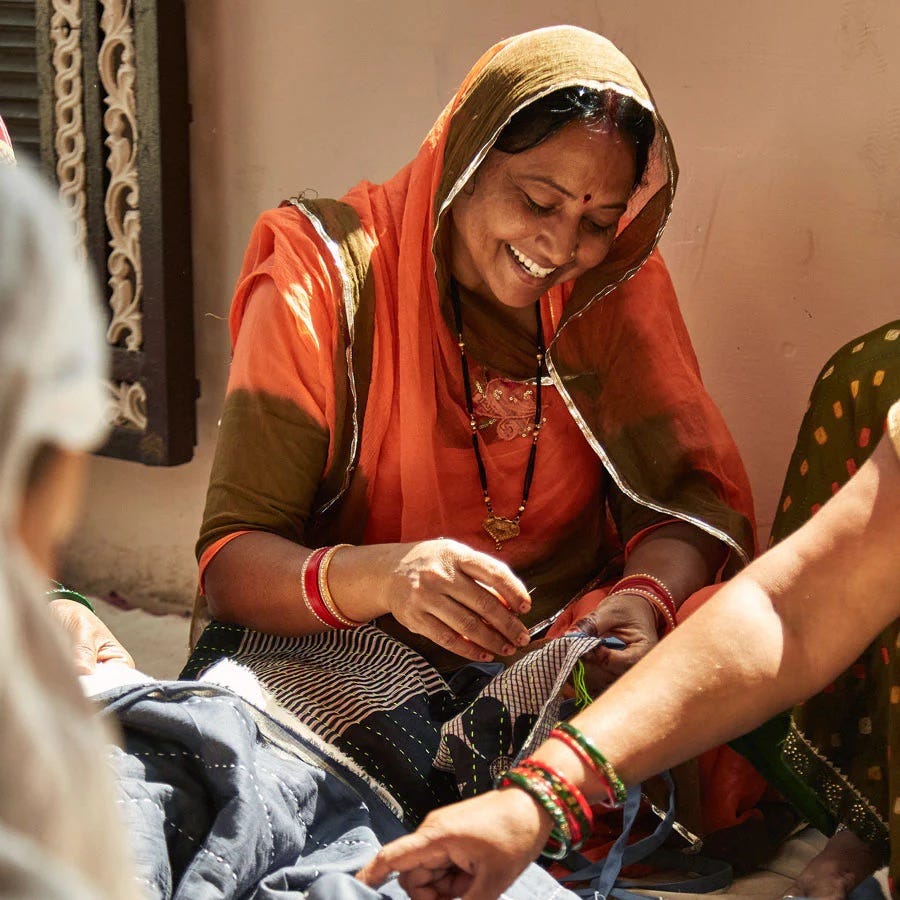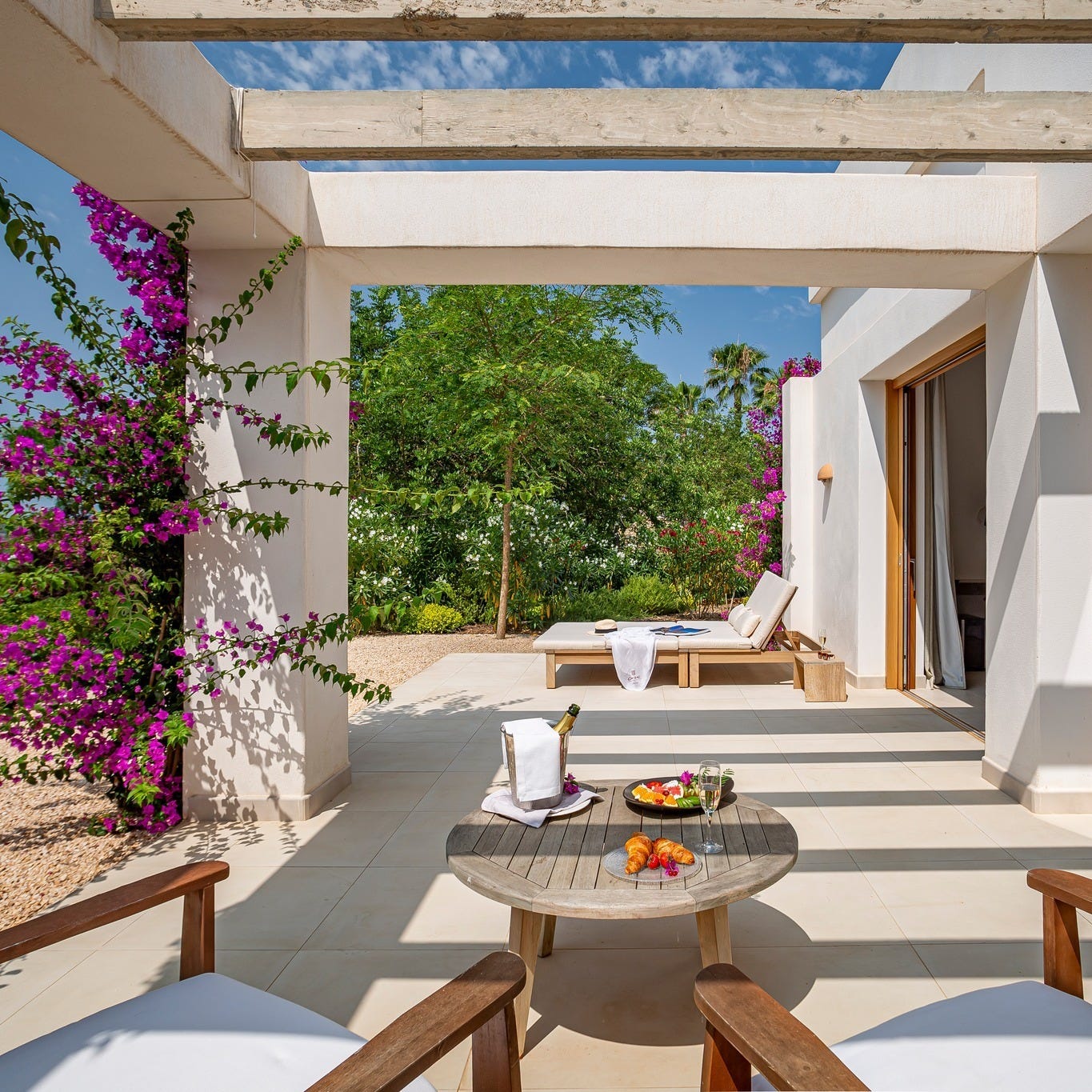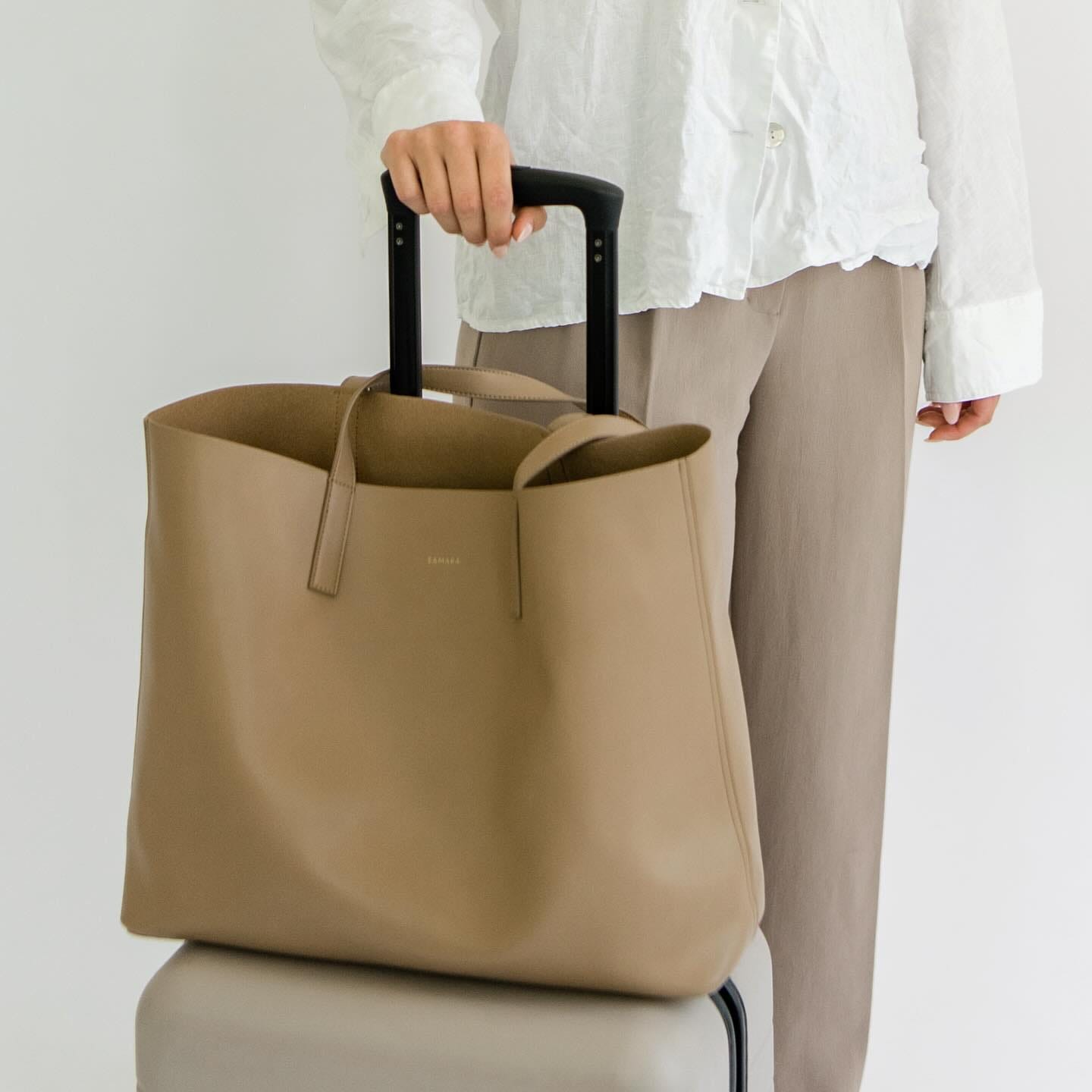The Power of Naming - Why Some Things Shouldn’t Go Without Saying
From gender bias to climate grief, the first step is speaking up.
If you haven’t yet, quick reminder to explore my new Etsy shop for printable guides and tools to help you build an intentional, eco-luxury life.
When was the last time you said or heard the term “mankind” to describe humanity? Or how often do you say “guys” when calling attention to a group of men and women?
You can probably see where I’m going with this…but no this week’s musings aren’t (only) about systemic and pervasive gender bias. For that, I will refer you to Caroline Criado Perez’s incredible book, Invisible Women: Exposing Data Bias in a World Designed for Men, which I’ve been devouring this week.
However, her book - and especially the quote below - did get me thinking about language, how narrative constructs our shared reality, and whether things that “go without saying” should, in fact, be said.
“One of the most important things to say about the gender data gap is that it is not generally malicious, or even deliberate. Quite the opposite. It is simply the product of a way of thinking that has been around for millennia and is therefore a kind of not thinking. A double not thinking, even: men go without saying, and women don't get said at all. Because when we say human, on the whole, we mean man.” - Caroline Criado Perez
If you’ve been feeling a little crazy lately—reading about atrocities in the news and scrolling past footage of bombed-out cities, starving children and burning forests while sipping coffee or having a wee—you’re not alone. What you’re experiencing is a very real trauma response called collective dissociation, a way to psychologically shut down in the face of unbearable helplessness, grief, or rage. Collective dissociation arises when the scale and emotional weight of a crisis exceed what our nervous systems and social systems are equipped to hold.

So what do we do? We scroll past, we pull up our pants (both real and proverbial), and we continue on our day.
But the trouble with dissociation is this: we stop naming the thing. And once we stop naming it, we start normalizing it. We become the silent onlookers watching another human get harmed—not out of malice, but because we assume someone else will step in. Or worse, we take other people’s silence as a cue that it’s not our place to speak up, either.
It all got me thinking: if that feeling of powerlessness is the problem, maybe one small way to take our power back is simply naming. Not necessarily solving, just naming. Speaking truth out loud, again and again, until it begins to shift the air around us.
Because some things should NOT go without saying, but should in fact be spoken about, held up, and re-examined in the light of today.
Things like:
Unpaid caregiving—mostly done by women—props up entire economies.
Or…
Clean water is still a luxury in many parts of the United States.
Or…
ICE raids are terrorizing children and agents are deporting parents without their babies.
Or…
Climate change is killing people now—not in the future, not in faraway places, but here, today.
Or…
The people growing our food often can’t afford to feed their own families.
Or so many others.
The truth is, we are all complicit in systems that benefit from someone else’s suffering, but that doesn’t mean it should “go without saying” - because when we start saying, we begin reclaiming our capacity to feel, reuniting the mind with the body, maybe even reuniting, once again, with one another in a long overdue acknowledgement of our shared humanity.
The Eco-Luxury Edit:
Under The Nile - Under the Nile creates organic cotton toys and baby goods rooted in holistic sustainability and social empowerment. Partnering with Egypt’s SEKEM Foundation, they prioritize biodynamic farming, fair wages, and programs supporting education, women’s health, and disability inclusion. Their 13 Villages Project helps rural women earn income through toy-making with upcycled fabric.
SOKO Jewelry - Wanted to shout out to Kenya because one of my most dedicated readers is from there :). SOKO transforms Kenya’s artisan economy through a unique “virtual factory” model that connects independent jewelers to global markets via mobile tech. This decentralized supply chain empowers makers—especially women—to earn five times more than traditional workshops, while preserving heritage techniques. Each piece embodies radical transparency, ethical production, and the brilliance of design rooted in sovereignty.
Anchal Project - Anchal Project is a nonprofit design brand offering richly textured quilts, scarves, and accessories handmade by women in India using organic cotton and vintage saris. Beyond beautiful craft, each piece represents a holistic employment model—providing artisans with fair wages, health care, education, and creative expression through the revival of traditional kantha embroidery and other heritage techniques.
Can Lluc Resort - Located in Spain’s Ibizan countryside, Can Lluc is a family-run retreat surrounded by olive groves and rolling hills. Sustainability is embedded in everything—from solar-powered energy and water filtration to land stewardship and support for nearby agricultural cooperatives. The resort offers an immersive, off-the-beaten-path experience that centers local heritage, slow living, and restorative comfort.
Samara Bags - SAMARA is redefining eco-luxury by fusing elegant minimalism with material innovation. Founded by two sisters and powered by an all-female team, the brand crafts chic, cruelty-free bags and accessories using cutting-edge materials like apple leather, castor seed polymer, and recycled ocean plastics. Their streamlined designs—often made from a single folded piece—showcase the beauty of restraint, while their commitment to plant-based, low-impact alternatives positions them at the forefront of the sustainable fashion movement.
5 Things That Made Me Hopeful This Week:
Pope Leo Calls for Climate Action - Pope Leo XIV paused his vacation to lead a special outdoor Mass urging the world to protect our planet. He reminded Catholics that caring for the Earth is a moral duty. His message brings faith and climate action together—and shows just how seriously the Church is taking the issue.
Scientists Turn Rain Into Electricity - A new invention from Singapore turns falling rain into electricity—enough to light LED bulbs using only water droplets and gravity. This breakthrough could one day power homes during storms, making clean energy available even when the sun isn’t shining.
Cities Lead the Way on Climate Solutions - While many countries fall behind on climate goals, cities are stepping up in big ways. From planting trees to solar panels on schools, urban leaders are cutting emissions, improving public health, and making daily life better. It’s proof that change can come from the bottom up, as well as the top down.
Microsoft’s Tree-Planting Project in India - Microsoft is helping plant 11.6 million trees in India to fight climate change and support local communities. The trees will remove 3 million tons of carbon and bring extra income to farmers through fruit, herbs, and carbon credits.
Natural Hydrogen: A New Clean Energy Hope - Scientists have discovered massive underground stores of natural “white hydrogen”—a clean fuel that could meet energy needs for 200 years. If just 2% is recoverable, it could help replace fossil fuels. Companies are racing to find and safely extract it, offering new hope for affordable, planet-friendly energy.
Something I wrote recently:
Charting Indonesia’s Remote Paradise Aboard the Fenides Yacht - Upscale Living
Thanks again for subscribing and going on this journey with me as we uncover true eco and ethical-luxuries and the positive ripple effect they can have on our lives and communities. Let me know what you learned or found useful, and whether you’ve tried any of the brands or ideas in this edit for yourself!
Let's build a future of conscious indulgence, together!
Until next time
-Bonnie

